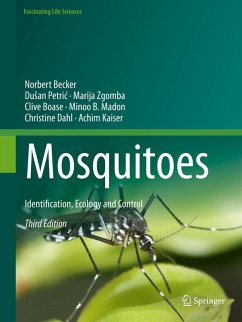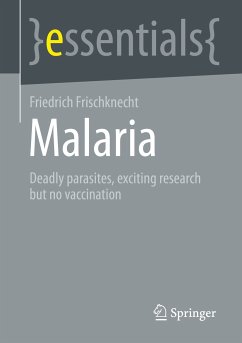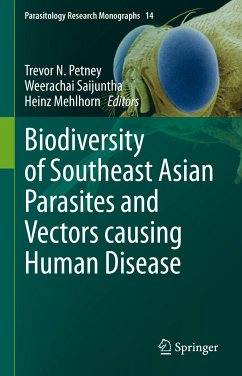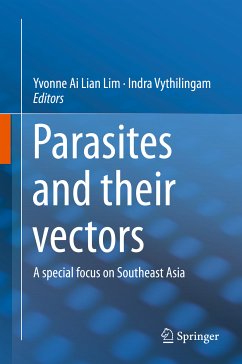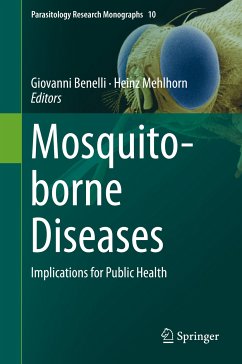
Molecular Identification of Mosquito Vectors and Their Management (eBook, PDF)
Versandkostenfrei!
Sofort per Download lieferbar
120,95 €
inkl. MwSt.
Weitere Ausgaben:

PAYBACK Punkte
60 °P sammeln!
This book summarizes the recent advancements in identifying the mosquito vectors and discusses various strategies for their control.The book describes various molecular taxonomic methods, including DNA barcoding and single nucleotide polymorphism-based machine learning approach, which are used for the identification of mosquito vectors.It also presents the various mosquito control methods, namely, phytochemicals, Bacillus thuringiensis toxins, nanotechnology, biological control agents, and environmental management strategies. It also highlights the importance of various repellents that are use...
This book summarizes the recent advancements in identifying the mosquito vectors and discusses various strategies for their control.
The book describes various molecular taxonomic methods, including DNA barcoding and single nucleotide polymorphism-based machine learning approach, which are used for the identification of mosquito vectors.
It also presents the various mosquito control methods, namely, phytochemicals, Bacillus thuringiensis toxins, nanotechnology, biological control agents, and environmental management strategies. It also highlights the importance of various repellents that are used for protection from different kinds of mosquito vectors.
Finally, the book offers a comprehensive yet representative description of challenges associated with mosquito vector-borne diseases. The book is a useful resource for medical entomologists, health workers, and researchers working in mosquito-control and vector-borne diseases.
The book describes various molecular taxonomic methods, including DNA barcoding and single nucleotide polymorphism-based machine learning approach, which are used for the identification of mosquito vectors.
It also presents the various mosquito control methods, namely, phytochemicals, Bacillus thuringiensis toxins, nanotechnology, biological control agents, and environmental management strategies. It also highlights the importance of various repellents that are used for protection from different kinds of mosquito vectors.
Finally, the book offers a comprehensive yet representative description of challenges associated with mosquito vector-borne diseases. The book is a useful resource for medical entomologists, health workers, and researchers working in mosquito-control and vector-borne diseases.
Dieser Download kann aus rechtlichen Gründen nur mit Rechnungsadresse in A, B, BG, CY, CZ, D, DK, EW, E, FIN, F, GR, HR, H, IRL, I, LT, L, LR, M, NL, PL, P, R, S, SLO, SK ausgeliefert werden.



